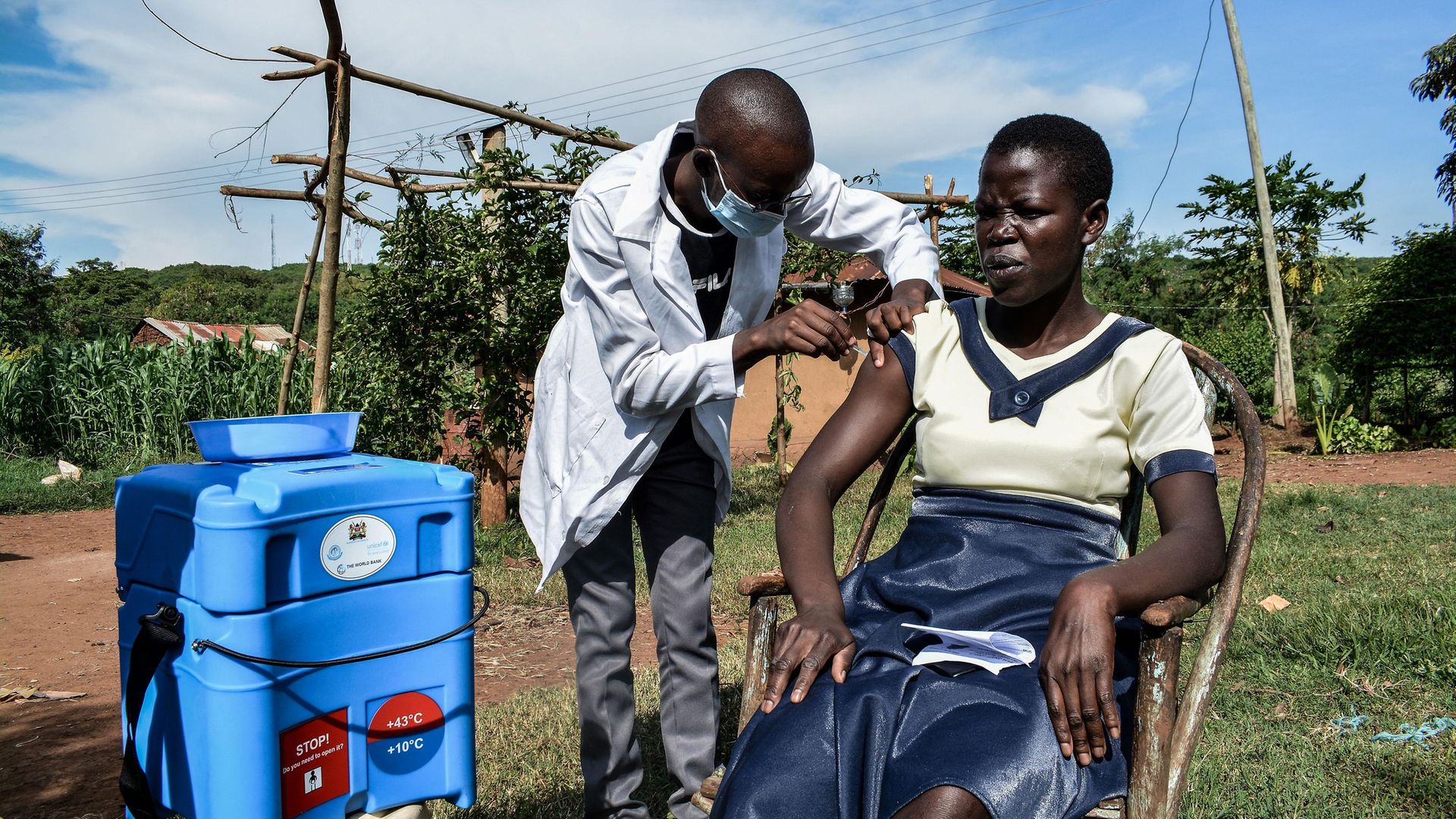
Pledges from wealthier nations to help vaccinate other countries are no more than token gestures
It had all been going so well. The UK’s four-stage reopening – at a slower and more cautious pace than previous liftings of restrictions – had successfully completed its first three stages, and had done so without too much in the way of hospitalisations or deaths.
Unfortunately, this week we learned that the reopening will not continue on schedule for its fourth and hopefully final stage, with an initial delay of four weeks to the government’s proposed schedule.
The reason is the Delta variant of the virus, first detected in India, which is behind a steady increase of cases once again, working its way through the population with its significantly higher transmissibility. Even in a country with such high vaccination rates – 42 million people in the UK have had a first jab and 30 million have had both – the variant presents a serious danger.
The vaccines, though, still represent the country’s way out of this crisis, and finding that way out remains a matter of patience – of waiting a few extra weeks for yet more vaccinations before reopening further. The rest of the world is not in nearly such a fortunate position.
The UK has the highest vaccination rate of any medium or large country in the world, and is on track to have herd immunity through vaccination within 2-3 months. But at the current rate of vaccine delivery and distribution, many countries could be left exposed for decades.
A data dashboard from Our World In Data shows no African nation has achieved a vaccination rate of more than 10%, with many floundering well below 5%. Even relatively rich countries on the continent have low rates: South Africa has vaccinated just 1% of its population, Kenya less than 2% and Nigeria also less than 1%.
Many East Asian nations have similarly low vaccination rates – again averaging below 10% – despite otherwise good early coronavirus responses. Despite its huge problems with a recent wave of Covid, India has vaccinated less than one in five of its population with a single shot, and we don’t have any public accessible data for China’s progress on vaccination.
That means that much of the world is facing a much more transmissible version while being nowhere near herd immunity through vaccination. That is bad on a humanitarian level, simply because those countries remain vulnerable to devastating new waves of coronavirus.
It is also a bad sign for anyone wanting to reopen the world and have the open borders for travel, work, and meeting family that we enjoyed until early last year. But it is also bad in the narrowest of self-interest: each country where coronavirus can spread untrammelled is another real-world petri dish in which it can mutate and potentially become vaccine resistant. No-one is safe from Covid until we’re all safe from Covid.
The problem is that most of our actual political response to coronavirus ignores that maxim almost entirely. The most obvious failing of this could be seen at the G7 summit over the weekend, where the world’s largest economies – who collectively hold around half of the world’s wealth – failed to actually secure enough commitments to donate a billion doses of vaccine.
Even an actual donation of a billion doses would not be nearly enough to vaccinate the world – it would be an inadequate response in itself. Failing to hit it should be at an absolute minimum an embarrassment. Given the stakes at hand it is a matter of major public shame.
And yet, like foreign aid as a whole, the idea of donating vaccines has become one of gesture and of looking after ourselves, all the while failing to see the larger picture – that donating is a simple matter of enlightened self-interest.
Campaign groups are calling for countries and companies to drop their patent rights and share the complex technology in producing modern vaccines with companies and countries in the global south. Experts involved in the global vaccination rollout say this is not the panacea it might appear to be – and would not on its own necessarily speed up the global vaccine rollout.
But if rich countries are resisting taking the course of action that many if not most global development charities are calling for, they need to instead show that they have a better and faster course to get the world vaccinated.
The G7 summit instead showed the very opposite – that we’re living in a world where our leaders are making token gestures, exactly at a time they need to be taking real action.
Scientists bought us a chance to end the pandemic by developing multiple vaccinations in record time. Politicians are squandering that advantage. Will they wake up in time, or will they once again dither for so long that coronavirus once again gets the upper hand?
What do you think? Have your say on this and more by emailing letters@theneweuropean.co.uk
Warning: Illegal string offset 'link_id' in /mnt/storage/stage/www/wp-includes/bookmark.php on line 357
Notice: Trying to get property 'link_id' of non-object in /mnt/storage/stage/www/wp-includes/bookmark.php on line 37







